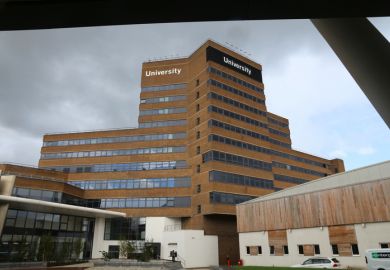Pushing for all academics to have a doctorate would be “undesirable” given the relevance of professional experience in many subjects, despite the benefits of the increasing numbers of UK staff holding a PhD, an expert said.
Malcolm Tight, a professor of higher education at Lancaster University who wrote a key paper a decade ago raising concerns about the low numbers of academics with a PhD, said it would probably become the “norm and expectation” that most staff in multidisciplinary universities had such a qualification.
However, the practical and professional slant to many subjects meant other qualifications could sometimes still be of “greater relevance”, while smaller and specialist institutions may continue to look different from broad-based institutions in terms of numbers holding a PhD.
The issue of whether academics should have a PhD has bubbled to the surface again after an accountancy lecturer won an employment tribunal case over a university’s insistence that he should study for a doctorate.
Jonathan Duxbury successfully claimed he was unfairly dismissed by the University of Huddersfield, which brought in a policy in 2013 that all full-time permanent staff should have – or be studying towards – a doctorate as well as other teaching qualifications, a strategy that it previously said had raised standards.
The latest figures from the Higher Education Statistics Agency show Huddersfield saw the biggest leap in share of full-time academics with a PhD over the five years to 2019-20, from 61 per cent to 80 per cent, but most institutions have been moving in a similar direction.
Twenty other institutions saw the share of full-time staff with a PhD rise by 10 percentage points or more over the period.
Two-thirds of providers in the sector now have at least half of academics qualified to this level, with the overall proportion of full-time staff with a doctorate now at 69 per cent when those with an unknown qualification level are excluded.
Although Professor Tight suggested at the time of his 2012 paper that the share of academics with a doctorate should be higher, he said seeking 100 per cent coverage in the sector may not be the best situation, either.
“I think this would be undesirable. Many – arguably most – subjects/disciplines now found within the university…have a strong practical or professional orientation,” he said, with many lecturers working in industry alongside their university role.
“In those roles, other qualifications, or more generally experience, are of greater relevance. Also, with more academics now in teaching-focused roles, other kinds of qualification are more relevant for them as well. We may move to a situation where the diversity of academic roles is more valued.”
David Green, vice-chancellor at the University of Worcester, one of the minority of universities where less than 40 per cent of full-time academics have a PhD, said it did have posts that required a doctorate but relevant experience was emphasised in other cases.
“Worcester’s student composition is 30 per cent health professionals…and 25 per cent education. In these areas, lecturers must be qualified, experienced professionals as well as scholars and educators. Often they are also researchers, but not always,” he said.
Michael Young, deputy vice-chancellor (academic) at the University of Sunderland, another institution still with a relatively low share of staff holding a doctorate – 35 per cent of full-time staff in 2019-20 – also said PhD requirements were decided on a “case-by-case basis when a new post is introduced”.
“There is no policy that requires existing staff to take a PhD. However, there is considerable demand for this opportunity from our staff and currently we have over 60 academic staff enrolled on a PhD programme,” he said.
POSTSCRIPT:
Print headline: Professor: complete PhD coverage for lecturers ‘undesirable’
Register to continue
Why register?
- Registration is free and only takes a moment
- Once registered, you can read 3 articles a month
- Sign up for our newsletter
Subscribe
Or subscribe for unlimited access to:
- Unlimited access to news, views, insights & reviews
- Digital editions
- Digital access to THE’s university and college rankings analysis
Already registered or a current subscriber?








